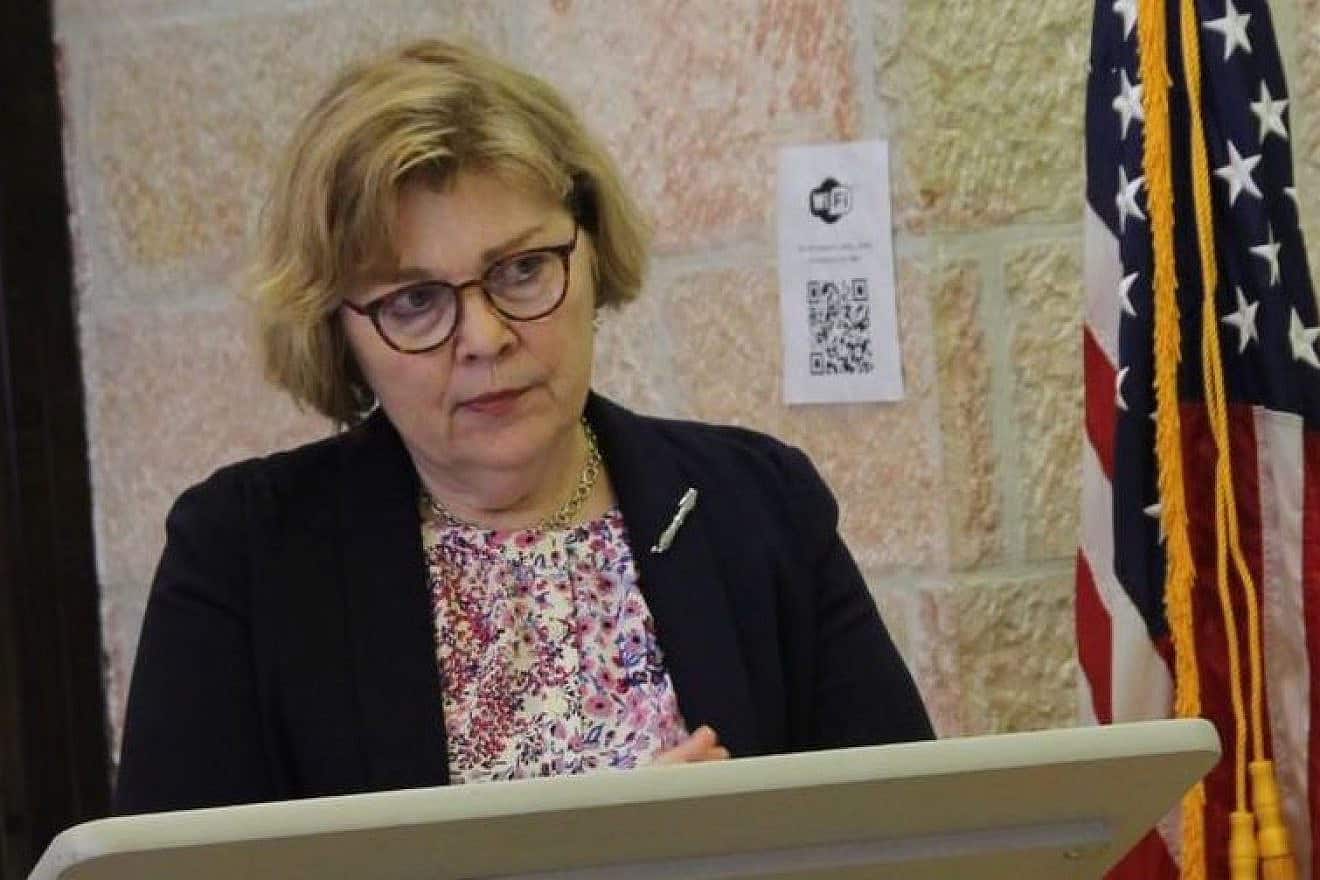The U.S. State Department’s top Middle East envoy has spent nearly her entire career working in the region and has never seen it so hot.
“In my experience, there is nothing like the challenges that present themselves to us today and, indeed, present themselves to the region in terms of the far-flung and expanding impact of this conflict,” Barbara Leaf, assistant secretary of state for Near Eastern affairs, told reporters on Wednesday prior to a trip to the region.
Leaf has visited the Middle East six times since Hamas terrorists attacked Israel on Oct. 7. She arrives again with a tall order of short-term tasks awaiting her—top among them improving the humanitarian situation in Gaza.
“That means working with all of our partners to increase the aid making its way to the people of Gaza and urging that every feasible measure be taken to protect civilian lives,” she told reporters.
She and colleagues are “pushing hard” for the immediate release of all hostages being held in Gaza, she added, and it’s within her purview to “ensure that Oct. 7 can never happen again.”
She and colleagues are also trying to ensure that the conflict does not expand.
“That has been a focus of every bit of our diplomacy since the first days of the conflict,” Leaf said. “This goal is complicated, obviously, by the destabilizing actions undertaken by Iran-backed actors across the region.”
Further down the line, Washington and partners aim “to begin the hard work of establishing a pathway to a Palestinian state,” Leaf said. She called that “the only way to create a longer lasting peace that will benefit not just Israelis and Palestinians, but the region more generally.”
Israeli alarm
The Biden administration’s increasing push for a Palestinian state has alarmed many Israelis. While the White House has gone out on a political limb to back Israel’s efforts to eradicate the Hamas terror organization in Gaza, signs of mounting tension between Washington and Jerusalem are evident.
Asked about a report—which the White House has denied—that Washington is considering slowing weapons transfers to Israel, Leaf was adamant. “In a word, no,” she said. “We’re not contemplating that.”
That may be due to U.S. fears of more fronts opening up, including on Israel’s northern border with Lebanon.
“There is a sobering level of volatility on that northern border, and let’s recall how it started and how it has been fostered,” Leaf said. “It’s Hezbollah getting into the fray, as it were, with rocket attacks and other attacks on Israel and violations of the Blue Line and bringing forces close to the border, which are terribly, terribly threatening to the communities of northern Israel.”
Some 80,000 Israelis have evacuated northern border areas as a result of missile attacks and attempts to infiltrate border communities.
The Biden administration has worked to “ensure that the Israeli military has an understanding of what is and isn’t happening along the border,” so that the conflict doesn’t devolve further based on misunderstandings, Leaf said.
She also touched on the scandal surrounding UNRWA, the Palestinian-only relief agency of the United Nations. Many major donor countries have suspended aid to UNRWA pending an internal U.N. investigation following revelations that a dozen UNRWA staff members participated directly in Hamas’s Oct. 7 attacks. The Wall Street Journal reported that some 10% of UNRWA employees have ties to Palestinian terror groups.
Leaf noted “urgency in both directions.”
“We really had no choice but to suspend our funding last week, given the severity of these allegations. But we and other donors and the U.N. are working with all speed to understand what—to get to the bottom of this, and also to ensure that it does not happen again,” she said. “We’re consulting closely, obviously, with the Israeli government, as well as other donors and countries of the region, and of course, with our own members of Congress.”
Leaf’s itinerary was not available at the time of the briefing and may change due to volatility, both on Israel’s borders and in Yemen, Iraq and Syria, all of which are tied to Iran.
U.S. Secretary of State Antony Blinken is set to be in Israel on Sunday and Monday, a senior U.S. official announced on Thursday.


























